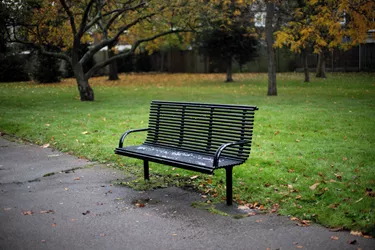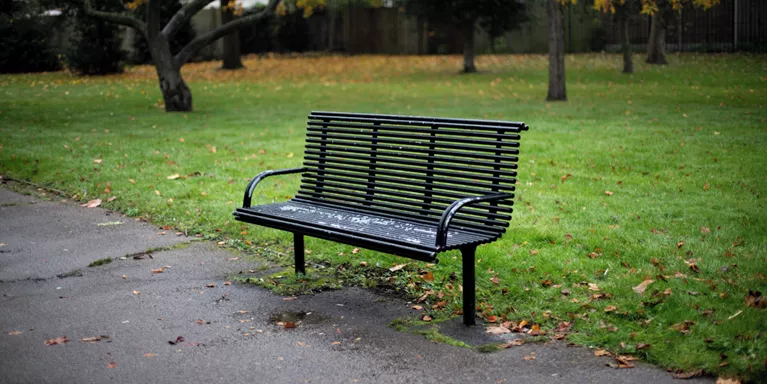I developed derealisation after being concussed playing rugby
Robert blogs about how his world changed six years ago and how hard it was to get help for his condition.
I remember this moment vividly. It’s late 2016 and I am in my first year of university. I’m on one of my walks when I stop. The tears roll down my cheeks and the questions I have been asking myself for the past few months are swirling in my head. Why do I feel so spaced out all the time? Why can’t I snap out of this? How can I explain this to someone? Why do I have to act as though everything is ok? The harder I looked for answers, the more depressed and isolated I felt. The more convinced I was that I was the only person ever to have felt like this. No one would understand. No one would listen. My mind centred around the question - what is wrong with me?
“I felt dazed, tired, headachy and unable to concentrate – normal symptoms of a head injury. However, the ‘spaced out’ feeling remains to this day.”
Where had this all begun? A few months before the moment described above I had suffered a concussion playing rugby. (While I have had it confirmed that my derealisation has a psychological cause, I would advise anyone who has had a concussion to discuss their symptoms with a medical professional to rule out any neurological injury).
In the days that followed my concussion I felt dazed, tired, headachy and unable to concentrate – normal symptoms of a head injury. However, the ‘spaced out’ feeling remains to this day - almost six and a half years later. On bad days, I am in a daze, unable to connect and feel present, as though there is a barrier between me and everything and everyone else. It feels a little like you do after a couple of drinks – you’re not drunk, just a little hazy and distant.
Things that compounded my experience
Several things have compounded my experience with derealisation. Firstly, when I was younger I felt unable to express my emotions and open up to others, particularly about a condition I did not understand initially. My sense of self-worth had been tied to sporting success and a ‘get up and go’ ethic. Derealisation eroded both.
Secondly, on several occasions I tried to explain my symptoms to the doctor and the responses were trivialising. “Oh it’s just anxiety, it will pass”. I was told, and “That’s a bit strange what you’ve just described”. I now know that many people with symptoms of dissociation have experienced similar responses from medical professionals.
“If the doctors can’t tell me what is happening then I must be making it up, I told myself. Or it is something only I have.”
This lack of help was horrifying and led me to further deny what was happening. If the doctors can’t tell me what is happening then I must be making it up, I told myself, or it is something only I have. Having a problem and thinking you’re the only person in the world with it is so isolating and made everything feel 100 times worse.
Things have improved in recent months. I can’t say everything is completely fine now. However I have definitely learned things I wish I’d known when all this started in 2016. Hopefully this will help anyone out there experiencing similar symptoms.
Firstly, reading around what dissociation is and why it happens has helped to normalise my experiences. In simple terms, dissociation (of which derealisation is one form) is a defence mechanism the mind employs when faced with too much stress. I remember when I first discovered the word derealisation I felt such a relief that it was a recognised mental health problem. Understanding that it’s a response my mind uses when faced with stress has helped shift my thinking away from me being the problem but to realising it’s a response my brain has simply learned to employ.
I have found going to therapy useful and understanding more about my experiences. In these sessions, I have thought for a long time about what may have triggered the derealisation. It is likely the depression and isolation around the time of the injury contributed to the onset of derealisation. It is also possible that I used to disassociate as a child and derealisation ‘came back’ during a time of heightened stress.
To make sure doctors treated me seriously I took printouts about derealisation to appointments. Don’t be afraid to come across as patronising. GPs can’t be expected to know everything about every health issue so taking some information about derealisation can help explain your symptoms and decrease the chances of not being taken seriously.
Telling people how I feel
Communicating with those nearest to me about my struggles has been extremely cathartic. Until as recently as a couple of years ago, the very idea of verbalising what I was experiencing was overwhelming so I avoided doing it and shut down when asked how I was. It has been extremely difficult to open up to those around me, but having done so I’ve realised that people do listen and do care. So, I’d encourage anyone to find someone they trust to discuss their experiences and symptoms with. Try to make things easy for yourself by considering how you’re going to start the conversation.
Finally, I now recognise that it is perfectly ok to have a mental health problem and it doesn’t make me less of a person. It’s ok to turn down a social event if you’re having a bad day. It’s okay to experience symptoms some people might cast aside or belittle. It’s okay if things aren’t getting better immediately. It’s ok to feel weak, numb and detached. Please recognise that you are not alone and, most importantly stay optimistic – things can get better.


Information and support
When you’re living with a mental health problem, or supporting someone who is, having access to the right information - about a condition, treatment options, or practical issues - is vital. Visit our information pages to find out more.
Share your story with others
Blogs and stories can show that people with mental health problems are cared about, understood and listened to. We can use it to challenge the status quo and change attitudes.















